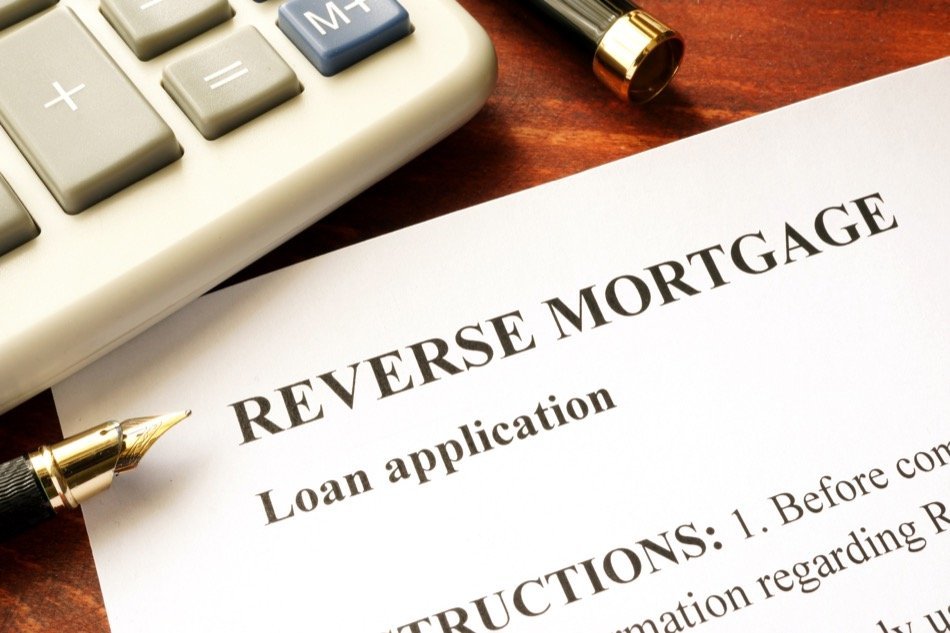What to Know About Reverse Mortgages
Posted by Gary Ashton on Monday, November 12th, 2018 at 7:43am.
 Protecting assets and income is an important part of retirement planning. As people get older, they may wonder if a reverse mortgage is appropriate for their needs. Reverse mortgages can provide a source of income in a variety of forms, drawn from a homeowner's equity. People who meet the requirements and have significant equity in their homes may want to consider a reverse mortgage. There are several things about reverse mortgages that differ from regular home loans, so homeowners should make sure they understand how it works before they apply.
Protecting assets and income is an important part of retirement planning. As people get older, they may wonder if a reverse mortgage is appropriate for their needs. Reverse mortgages can provide a source of income in a variety of forms, drawn from a homeowner's equity. People who meet the requirements and have significant equity in their homes may want to consider a reverse mortgage. There are several things about reverse mortgages that differ from regular home loans, so homeowners should make sure they understand how it works before they apply.
For informational purposes only. Always consult with a licensed mortgage professional before proceeding with any real estate transaction.
1. What Is a Reverse Mortgage?
When people get a regular mortgage, they make payments of interest and principal to a lender in exchange for equity in the home. A reverse mortgage changes the direction of much of this process. With a reverse mortgage, a lender provides a specific sum of money to a borrower, either at the close of the loan or over a period of time. In exchange, the lender charges interest on the money and uses the homeowner's equity as repayment. Homeowners are not required to pay for the mortgage, outside of closing costs and mortgage insurance premiums. Typically, they settle the debt by selling the home once they no longer live in it.
2. Are There Different Types of Reverse Mortgages?
There are a few aspects of reverse mortgages that can differ from one loan to the next. People should carefully consider their options before making a choice. Most reverse mortgages qualify as a Home Equity Conversion Mortgage, which is guaranteed by the government. Some borrowers opt to go with a private lender that offers different terms.
Although the standard reverse mortgage involves people receiving money to stay in their homes, there are alternatives. Some homeowners who want to downsize use a HECM for Purchase mortgage. This option incorporates a home purchase into a reverse mortgage, so that people can buy a home without having to make mortgage payments.
In addition, homeowners have a few options to choose for the way they receive the funds. These depend on the lender, and may include:
- a single payment
- monthly payments with a set term
- regular deposits for the life of the loan
- line of credit
Many lenders allow borrowers to combine these options. For example, people may want a lump sum with an additional line of credit that they can choose to use later.
3. How Do Homeowners Qualify for a Reverse Mortgage?
In order to apply for an HECM, borrowers must be able to prove that they meet the following conditions:
- age 62 or older
- live in a single-family home or a unit in a building that meets HUD requirements
- own the majority of the home outright
- claim it as a primary residence
Lenders may also check income and credit to confirm that borrowers will be able to make timely payments for property taxes and insurance. As a general rule, lenders prefer that all homeowners residing in the home apply for the loan.
4. How Much Money Can Homeowners Receive?
The amount of money people can get from a reverse mortgage depends on the age of the youngest applicant, how much equity they have in the home, and the payment format. Most of the time, homeowners are limited to borrowing up to 60 percent of available equity within the first year. Loans guaranteed by the government set limits on the maximum people can get, which runs about $680,000 in 2018. People with more expensive homes may be able to access more by going through a private lender that guarantees its own mortgages.
5. What Happens When the Mortgage Matures?
In many cases, the reverse mortgage does not mature until the borrowers have passed away. However, there are a few circumstances in which the loan may come due outside of this instance. If people fail to maintain the property appropriately or pay property taxes, the lender may terminate the mortgage. Maturity ends all payments to the borrower.
When a reverse mortgage matures, homeowners or next of kin have six months to settle the debt. In this time, people may choose to sell the home or find another way to repay the loan. Usually, the proceeds from the home sale will cover the loan. These mortgages are considered non-recourse debt. This means that if the loan is worth more than the property once it is sold, Hendersonville homeowners or family members are not responsible to repay the remainder.
Planning for retirement calls for homeowners to think about how they want to use their assets. Reverse mortgages may be an option to increase income and flexibility for the years to come. When people understand the specifics of reverse mortgages and how it might work for them, they can make an educated decision.
For informational purposes only. Always consult with a licensed mortgage professional before proceeding with any real estate transaction.

Gary Ashton
The Ashton Real Estate Group of RE/MAX Advantage
The #1 RE/MAX team in the World!
